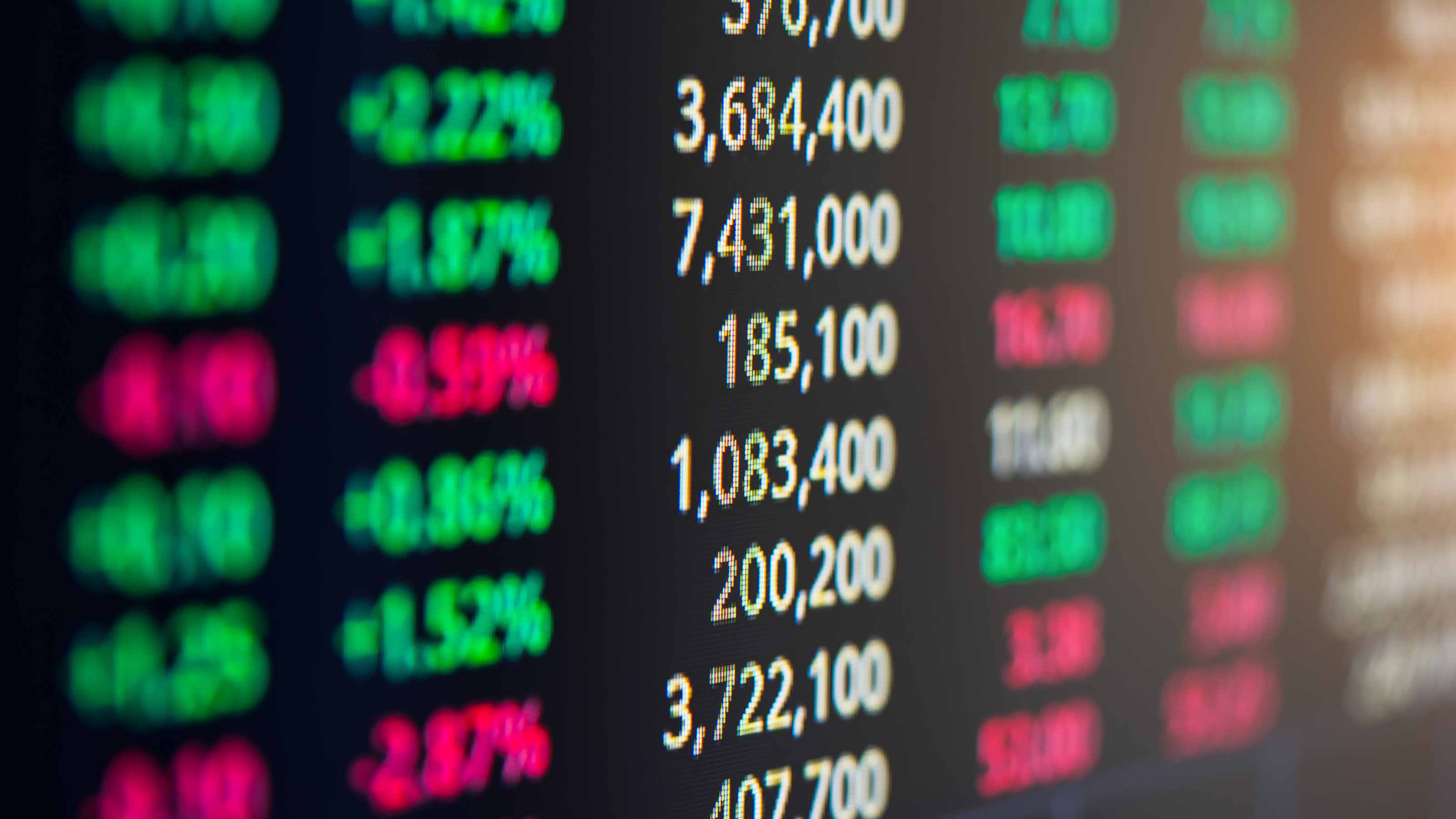Is It Time to Invest in Europe?
Europe is being shaken out of its lethargy, militarily and otherwise, by Donald Trump's changes in U.S. policy. Should investors start buying?


Profit and prosper with the best of Kiplinger's advice on investing, taxes, retirement, personal finance and much more. Delivered daily. Enter your email in the box and click Sign Me Up.
You are now subscribed
Your newsletter sign-up was successful
Want to add more newsletters?

Delivered daily
Kiplinger Today
Profit and prosper with the best of Kiplinger's advice on investing, taxes, retirement, personal finance and much more delivered daily. Smart money moves start here.

Sent five days a week
Kiplinger A Step Ahead
Get practical help to make better financial decisions in your everyday life, from spending to savings on top deals.

Delivered daily
Kiplinger Closing Bell
Get today's biggest financial and investing headlines delivered to your inbox every day the U.S. stock market is open.

Sent twice a week
Kiplinger Adviser Intel
Financial pros across the country share best practices and fresh tactics to preserve and grow your wealth.

Delivered weekly
Kiplinger Tax Tips
Trim your federal and state tax bills with practical tax-planning and tax-cutting strategies.

Sent twice a week
Kiplinger Retirement Tips
Your twice-a-week guide to planning and enjoying a financially secure and richly rewarding retirement

Sent bimonthly.
Kiplinger Adviser Angle
Insights for advisers, wealth managers and other financial professionals.

Sent twice a week
Kiplinger Investing Weekly
Your twice-a-week roundup of promising stocks, funds, companies and industries you should consider, ones you should avoid, and why.

Sent weekly for six weeks
Kiplinger Invest for Retirement
Your step-by-step six-part series on how to invest for retirement, from devising a successful strategy to exactly which investments to choose.
Europe's stocks have been terrible for investors. The MSCI Europe Index, which captures the performance of 399 mid- and large-capitalization stocks across 15 markets, returned an annual average of just 4.2% over the past 10 years. The equivalent MSCI index for U.S. stocks returned just over 11%.
Since 2018, the European index has beaten the U.S. index in only one year, 2022. But in 2023 and 2024, the U.S. beat Europe by an average of some 15 percentage points.
Europe's markets have done poorly because Europe's economy has been puttering along with minuscule growth, and Europe's companies have, with some important exceptions, lacked the drive and innovation of U.S. firms.
From just $107.88 $24.99 for Kiplinger Personal Finance
Become a smarter, better informed investor. Subscribe from just $107.88 $24.99, plus get up to 4 Special Issues

Sign up for Kiplinger’s Free Newsletters
Profit and prosper with the best of expert advice on investing, taxes, retirement, personal finance and more - straight to your e-mail.
Profit and prosper with the best of expert advice - straight to your e-mail.
So why on earth am I recommending the stocks? First, Europe is being shaken out of its lethargy, militarily and otherwise, mainly by Donald Trump's changes in U.S. policy. Second, Europe's economy and its businesses are improving. Third, European stocks are cheap.
I am not the only one recognizing Europe's investment potential. Despite recent market turmoil, so far this year, the iShares Europe (ticker symbol IEV, $52), a broadly diversified exchange-traded fund, has returned 0.10%, compared with a loss of 13.6% for a U.S. equivalent, the SPDR S&P 500 (SPY). (Prices and other data are through April 7; investments I like are in bold.)
U.S. stocks have dropped for several reasons, including the persistence of inflation. But in my view, the main issue is that investors are spooked by the Trump tariffs.
Like the rest of the world, as a trade war breaks out, Europe will suffer. But Europe is in a relatively good position because of the strength and history of the European Union as the world's largest trading bloc, with more than 440 million consumers and $4 trillion in trade among the 27 EU countries themselves.
With the Trump administration attempting to reduce the commitment of the U.S. as the world's military leader, European nations – notably Germany, Poland and the Scandinavian countries – are taking steps to fill the gaps, to the potential benefit of Europe's own defense and aerospace businesses.
Estimates are that Europe will need 300,000 more troops and nearly $300 billion in additional defense spending in the short term to deter Russia. Whether Europe has the will or the desire to spend the money is still uncertain, but the markets have responded in the affirmative.
Consider European defense, bank stocks

When I wrote about defense stocks recently, I mainly recommended U.S. companies. But as the new administration's national security policy has unfolded, European defense and aerospace stocks have been by far the best performers.
You can invest in them through their American depositary receipts (ADRs), which are bank securities that represent the actual foreign shares.
The stock of U.K.-based BAE Systems (BAESY, $77), which specializes in electronic warfare, has jumped 35% since the start of the year. Italy's Leonardo (FINMY, $21), which makes helicopters and cybersecurity tools, has soared 59%.
ThyssenKrupp (TKAMY, $9), a 213-year-old German industrial firm with a marine component that it plans to spin off, is up 124%. France's Thales (THLLY, $50), a diversified defense technology company, has risen 75%.
Unlike many other European stocks, these firms are no longer cheap, and while I don't believe in market timing, it may be prudent to wait and gauge the market effects of tariffs. Still, they are well-run companies that deserve to be on your buy list.
In a recent report, Morgan Stanley pointed out that "Europe is meaningfully outpacing the U.S. in positive 'economic surprises,' with economic data coming in better than analysts expected."
Bank profitability, according to the firm, is hitting record highs. The banking sector, in fact, is a good way to buy Europe as a whole, and attractive stocks abound.
The STOXX Europe 600 Banks Index has risen 4.1% for the year to date, compared with a decline of 14.5% for the Dow Jones U.S. Banks Index.
Among the best European banks is Milan-based UniCredit (UNCRY, $24), a business lender and wealth-management specialist with a strong presence in eastern and central Europe, where growth is brisk. The stock has returned 19% so far this year, and it carries a dividend yield of 6.9%.
BNP Paribas (BNPQY, $36), the largest French bank, has returned 18% and sports a yield of 7.2%, with a single-digit price-earnings ratio. Spain's Banco Santander (SAN, $6), based in the large EU nation that's growing the fastest, has gained 25%; it has a price-to-earnings (P/E) ratio of 7.
I especially like Brussels-based KBC Group (KBCSY, $39), which focuses on serving small to midsize businesses and, like UniCredit, recognizes the opportunities in the eastern half of the continent.
KBC is among the top 10 holdings of the Brown Advisory WMC Strategic Europe (BIAHX), one of the best of the managed European stock funds. Its expense ratio is 1.2%, but it's worth it.
Also in the portfolio: AIB Group (AIBGY, $12), a 200-year-old financial services firm that mainly operates in Ireland and the U.K. It has a low P/E, with a 7.0% dividend yield.
European bank stocks, as opposed to defense stocks, are bargains. So are European stocks in general. The average component of the MSCI Europe Index recently traded at a P/E, based on analysts' estimates of earnings for the year ahead, of just 14.
For the MSCI USA Index, the average P/E is 21. European stocks have an average dividend yield of 3.1%; U.S. stocks, 1.4%.
Avoid potential casualties

Most of Europe's largest companies – including pharmaceutical giants such as Novo Nordisk (NVO) and Roche (RHHBY), as well as LVMH Moët Hennessy Louis Vuitton (LVMUY), the luxury-goods conglomerate – sell their products all over the world, especially in the U.S. and China.
They will be hurt by what I believe will be slower economic growth in those countries in a trade war. Instead, look for businesses such as banks that are mostly Europe-focused.
Or look for smaller retail stocks. Consider Dino Polska (DNOPY, $57), which runs midsize grocery stores in Poland, one of the fastest-growing European countries.
Helsinki-based Kesko (KKOYY, $10) sells groceries, electrical supplies and automobiles in Finland and the rest of northern Europe and sports a 5.4% yield. Jeronimo Martins (JRONY, $42) owns a wide range of supermarkets, health and beauty stores, and restaurants in its home market of Portugal, as well as in Poland.
Finally, utility stocks are both Euro-centric and likely to be shielded from tariff wars. They are also benefiting from rising demand from electric vehicles and data centers.
Spain-based Iberdrola (IBDRY, $63), the largest in the sector by market cap, has been growing fast and carries a 3.9% yield.
For a smoother ride, check out Vienna's Verbund (OEZVY, $14), a smaller utility with sizable investments in wind and solar. Share prices have been static over the past few years, but the yield is 5.4%.
With the U.S. reducing its presence geopolitically, will this be Europe's decade? We'll have to see, but I am optimistic about European stocks for the first time in years.
James K. Glassman chairs Glassman Advisory, a public-affairs consulting firm. He does not write about his clients. His most recent book is Safety Net: The Strategy for De-Risking Your Investments in a Time of Turbulence. He owns none of the securities mentioned here. You can reach him at JKGlassman@gmail.com.
This item first appeared in Kiplinger Personal Finance Magazine, a monthly, trustworthy source of advice and guidance. Subscribe to help you make more money and keep more of the money you make here.
Related Content
Profit and prosper with the best of Kiplinger's advice on investing, taxes, retirement, personal finance and much more. Delivered daily. Enter your email in the box and click Sign Me Up.

-
 Nasdaq Leads a Rocky Risk-On Rally: Stock Market Today
Nasdaq Leads a Rocky Risk-On Rally: Stock Market TodayAnother worrying bout of late-session weakness couldn't take down the main equity indexes on Wednesday.
-
 Quiz: Do You Know How to Avoid the "Medigap Trap?"
Quiz: Do You Know How to Avoid the "Medigap Trap?"Quiz Test your basic knowledge of the "Medigap Trap" in our quick quiz.
-
 5 Top Tax-Efficient Mutual Funds for Smarter Investing
5 Top Tax-Efficient Mutual Funds for Smarter InvestingMutual funds are many things, but "tax-friendly" usually isn't one of them. These are the exceptions.
-
 Nasdaq Leads a Rocky Risk-On Rally: Stock Market Today
Nasdaq Leads a Rocky Risk-On Rally: Stock Market TodayAnother worrying bout of late-session weakness couldn't take down the main equity indexes on Wednesday.
-
 5 Top Tax-Efficient Mutual Funds for Smarter Investing
5 Top Tax-Efficient Mutual Funds for Smarter InvestingMutual funds are many things, but "tax-friendly" usually isn't one of them. These are the exceptions.
-
 Why Invest In Mutual Funds When ETFs Exist?
Why Invest In Mutual Funds When ETFs Exist?Exchange-traded funds are cheaper, more tax-efficient and more flexible. But don't put mutual funds out to pasture quite yet.
-
 Social Security Break-Even Math Is Helpful, But Don't Let It Dictate When You'll File
Social Security Break-Even Math Is Helpful, But Don't Let It Dictate When You'll FileYour Social Security break-even age tells you how long you'd need to live for delaying to pay off, but shouldn't be the sole basis for deciding when to claim.
-
 I'm an Opportunity Zone Pro: This Is How to Deliver Roth-Like Tax-Free Growth (Without Contribution Limits)
I'm an Opportunity Zone Pro: This Is How to Deliver Roth-Like Tax-Free Growth (Without Contribution Limits)Investors who combine Roth IRAs, the gold standard of tax-free savings, with qualified opportunity funds could enjoy decades of tax-free growth.
-
 One of the Most Powerful Wealth-Building Moves a Woman Can Make: A Midcareer Pivot
One of the Most Powerful Wealth-Building Moves a Woman Can Make: A Midcareer PivotIf it feels like you can't sustain what you're doing for the next 20 years, it's time for an honest look at what's draining you and what energizes you.
-
 Stocks Make More Big Up and Down Moves: Stock Market Today
Stocks Make More Big Up and Down Moves: Stock Market TodayThe impact of revolutionary technology has replaced world-changing trade policy as the major variable for markets, with mixed results for sectors and stocks.
-
 I'm a Wealth Adviser Obsessed With Mahjong: Here Are 8 Ways It Can Teach Us How to Manage Our Money
I'm a Wealth Adviser Obsessed With Mahjong: Here Are 8 Ways It Can Teach Us How to Manage Our MoneyThis increasingly popular Chinese game can teach us not only how to help manage our money but also how important it is to connect with other people.